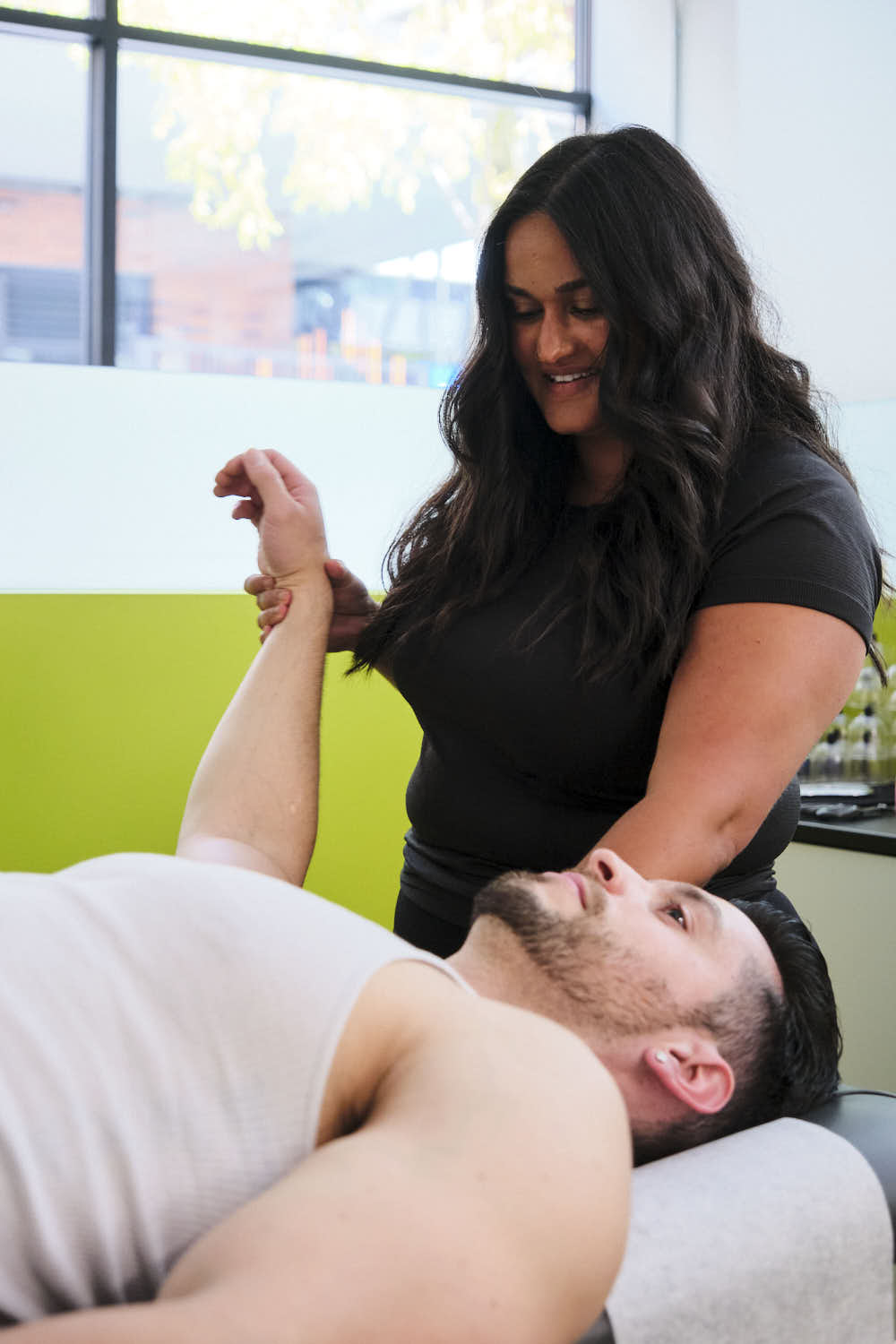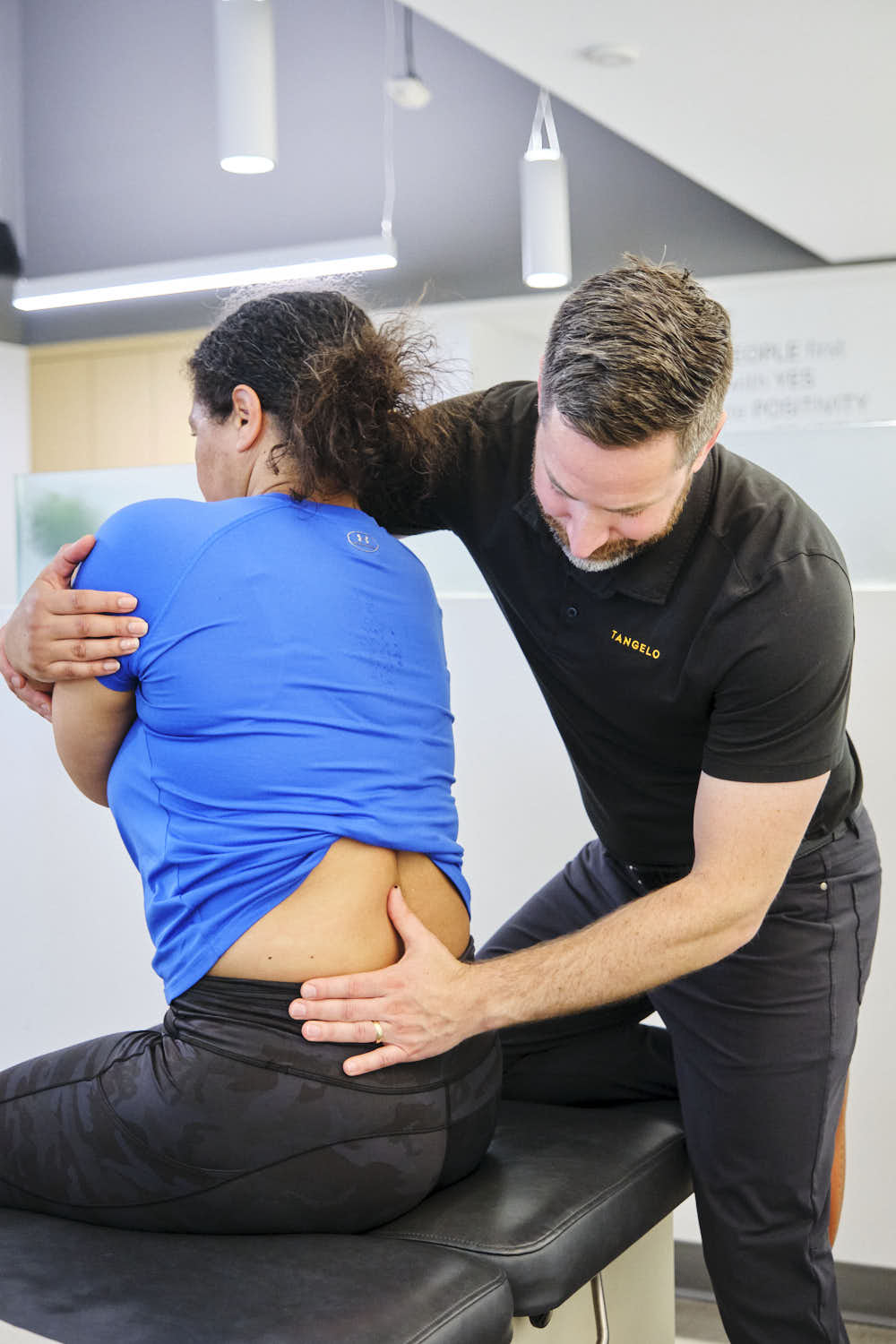Pinched Nerves and How to Treat Them
A pinched nerve, sometimes referred to as nerve impingement, can be very painful, hindering family time, work, and social and physical activities.
A stiff lower back, sore and tight neck, or motion loss in the shoulder can all be thanks to a pinched nerve, so identifying and knowing how to treat a pinched nerve is important to your recovery process.
With safe and restorative chiropractic care, that nerve impingement that’s making life more challenging can be of great benefit, so why not stop it? Life is challenging enough without daily discomforts that are so easily treatable.
Today we’re answering:
- What is a pinched nerve?
- What are the symptoms of a pinched nerve?
- How did I get a pinched nerve?
- Who gets pinched nerves?
- How will chiropractic help my pinched nerve pain?
- And more
Let’s get those questions answered so you can get back to your pain-free, active life.

- Sharp, shooting pain
- Throbbing pain
- Constant dull ache
- Mild discomfort
- Burning sensation
- Pain that relents then reappears
Our holistic Chiropractic solutions have effectively and efficiently remedied sciatica through non-invasive, safe techniques.
What is a Pinched Nerve?
The body consists of various soft tissues, including muscles, ligaments, tendons, and nerves. The nerves are the part of the nervous system that sends signals to the brain to tell you to feel sensations and to move the muscles you want moved.
A pinched nerve means the nerve is compressed. It has too much pressure on it from the other soft tissues, bones, joints, and cartilage that are surrounding it. This pressure on the nerve root can cause discomfort, improper movements, loss of flexibility, and pain.
Pinched nerves can happen almost anywhere in your body, as nerves run throughout; however, some areas are more prone to them.
- Neck
- Shoulder
- Back
- Elbow
- Wrist
- Hand
- Numbness
- Stiffness
- Sharp pain
- Dull aching
- Burning pain
- Radiating or moving pain
- Tingling sensations
- Weak muscles
If untreated, a pinched nerve can go away on its own; however, that’s not always the case and should not be your go-to method of treatment, as it can lead to more serious injury and pain, including permanent nerve damage.
Why Do I Have a Pinched Nerve?
To know why you have a pinched nerve, you need to know why your nerve is being compressed. In most cases, a chiropractor will have the experience and tools to quickly and correctly assess this reason.
Some common reasons you have a pinched nerve include:
- Pregnancy or weight gain
- Trauma due to serious injury (such as a sport or car accident)
- Unnatural stress on soft tissues, bones, and joints
- Habitual poor posture and bad ergonomics
- Repetitive movements and overuse injuries (in athletics, hobbies, and job)
- Emotional stress that leads to physical imbalances in the body
- Normal wear and tear
All kinds of individuals get pinched nerves, so there’s no foolproof way to avoid them; however, committing to leading a healthy lifestyle and supporting a healthy body will help.
People inclined to pinched nerves include:
- Those over 50
- Those with arthritis
- Those with bulging or herniated discs
- Those with degenerative disc conditions
- Those with carpal tunnel syndrome
- Those with sciatica
Pinched nerves affect millions of people a year, but don’t let them affect you more than necessary. Get natural, holistic care that will balance and align the body so it can function properly.
Chiropractic Care for Pinched Nerves
Pinched nerves are painful but fixable. Using chiropractic solutions, you can find yourself living comfortably before you know it. A chiropractor will determine the cause of your nerve injury and administer effective treatments to the soft tissues, joints, and muscles affecting the nerve. Once realigned, the nerve will no longer be restricted.
Some chiropractic treatments for pinched nerves include:
- Chiropractic adjustments – a quick thrust to a specific spinal joint that realigns the spine
- The Graston Technique– devices that break down scar tissue and reduce inflammation
- Cupping– cups placed on the skin over injured areas, improving circulation and repairing soft tissues
- Functional rehab therapy– exercises and stretches designed to strengthen the body
Don’t let your pain get in the way of your quality of life. Comprehensive chiropractic care is at your fingertips.

The Takeaway
The proper alignment of your spine and soft tissues is key to your overall health. When out of balance, all aspects of life are put at risk; it’s hard to focus on work, pain gets in the way of physical activity, sleep is compromised, mental productivity is impaired, and much more.
We’re ready to help; our Seattle chiropractic teams want to get you healthy and give you the tools to stay that way. Don’t lose another minute to your pinched nerve injury.
Contact our chiropractic team today, and we’ll start your journey toward recovery together.